What has the European Parliament ever done for us?
- Published
- comments
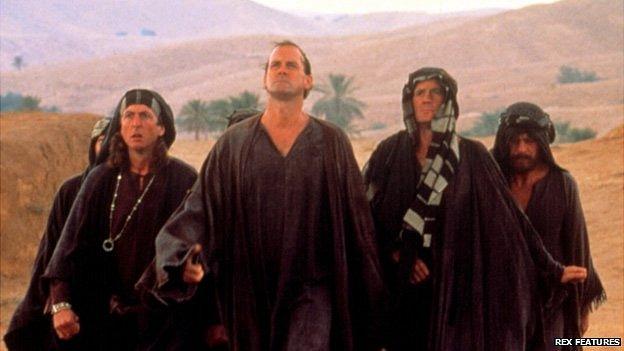
The rebels in Life of Brian: EU politics can appear as divisive as the Roman Empire
Built the roads? The aqueduct? Love it or hate it, the European Parliament seems to generate almost as much passion as the Roman Empire in Monty Python's comedy Life of Brian.
The European elections in May are widely expected to see more Eurosceptics elected to the parliament, amid continuing economic hardship for millions of Europeans and a much-criticised "disconnect" between EU institutions and voters.
The parliament's powers were boosted by the Lisbon Treaty in 2009. It now co-decides, with the EU governments, in nearly all policy areas.
MEPs are the only directly-elected EU officials - so what did they achieve in 2009-2014?

Anti-tobacco laws
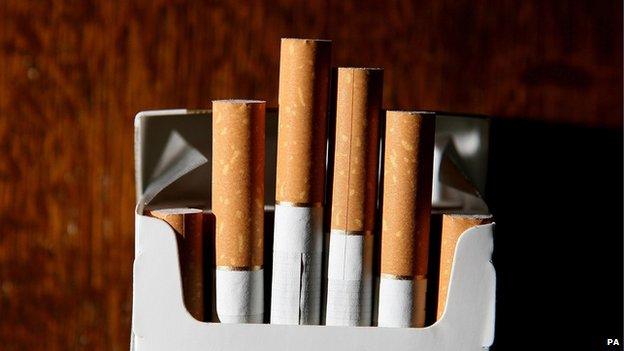
MEPs came under intense lobbying from the tobacco industry and health campaigners
MEPs backed a range of measures aimed at putting young people off smoking. Health campaigners said the compromise reached with EU governments did not go far enough.
The parliament rejected a European Commission proposal to treat electronic cigarettes as medicinal products - a move that would have restricted sales.
They backed a ban on cigarette flavourings - but with a five-year delay in the case of menthol. And slim cigarettes will not be banned.
Health warnings will be put on 65% of each cigarette pack - not the 75% proposed originally.

Saving fish stocks
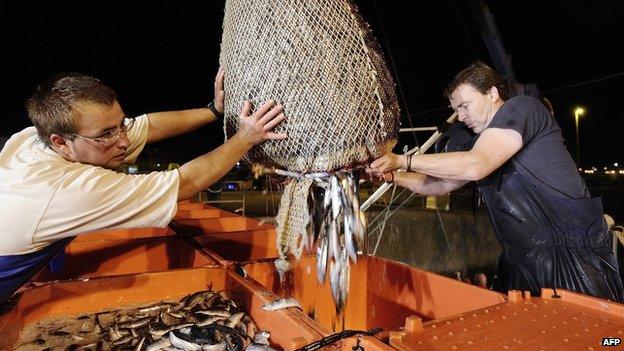
Quiberon, France: The new rules are aimed at making EU fishing sustainable
After years of tough negotiations, MEPs adopted a far-reaching reform of EU fisheries policy. The policy has been blamed for overfishing in European waters, which has seriously endangered many species, including cod and Atlantic bluefin tuna.
The main thrust of the reform is to give more powers back to fishing regions, instead of micro-managing fisheries from Brussels.
Crews will also have to make more use of technology to minimise wasteful catches. The aim is to make fishing sustainable, including better use of scientific data, so that "discards" become a thing of the past. Rigid quotas decided by EU ministers have led to crews discarding unwanted species - throwing them back into the sea, usually dead.
UK campaigners played a prominent role in getting the reform package adopted. The EU-wide campaign united ordinary citizens, celebrity chefs and environmentalists.

Farming reform
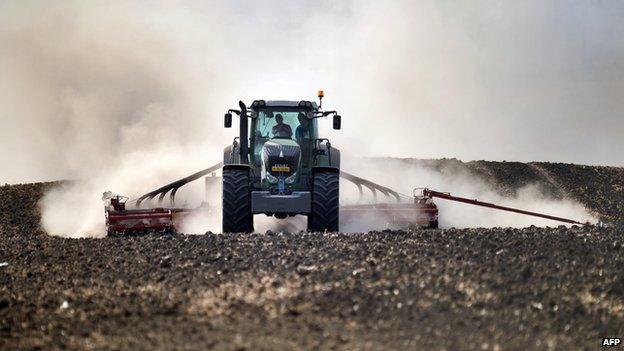
Ploughing in Romania: Big landowners and agri-businesses still get the lion's share of EU subsidies
For the first time MEPs were able to influence the EU's Common Agricultural Policy, which accounts for more than 40% of the EU's budget.
The complicated EU system of taxpayer-funded farm subsidies is being changed - but not as radically as many Europeans hoped.
Under the new system, there will be a 5% mandatory cut in payments to farmers who currently get more than 150,000 euros (£126,000; $202,000) in annual payments.
But states will have considerable flexibility in how they allocate the subsidies.
Critics said proposals for "greening" - putting more of the money into environmentally-friendly schemes, such as wildlife conservation - were watered down.
The deal allows 15% of environmental spending to be switched to direct farm support - and that annoyed UK Conservatives and Green MEPs, among others.

Financial regulation
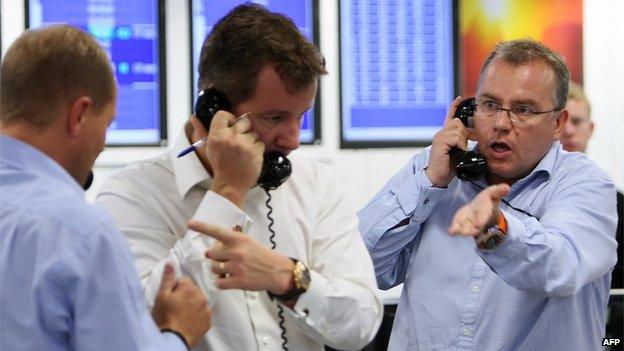
Brokers in London: The UK government opposes some of the EU banking reforms
MEPs have been closely involved in shaping the EU's new regulations for banks and other financial services. Light-touch regulation contributed to the reckless lending that triggered the global financial crisis in 2008.
The new rules cap bonuses at 100% of a banker's annual salary, or 200% if shareholders approve.
Banks will also have to hold more money in their reserves, as a buffer in case they get into difficulties again. The aim is to ensure that taxpayers no longer end up having to bail out troubled banks.
However, the UK Conservative-led government opposes the new bonus cap and has complained to the European Court of Justice.
In addition, many banks are adept at reducing their tax bills and may find ingenious - yet legal - ways round the new rules.

Mobile roaming charges

The EU has forced telecoms operators to cut tariffs for mobiles
During this parliament, the cost of making mobile phone calls when travelling abroad came down significantly.
The new price caps were proposed by the European Commission, then approved by MEPs and EU governments.
The sharpest price cuts were for internet browsing on a mobile. So in summer 2012 the browsing cap was set at 70 euro cents (60 pence) per MB, which became 45 cents (39 pence) per MB in 2013.

Internet freedom
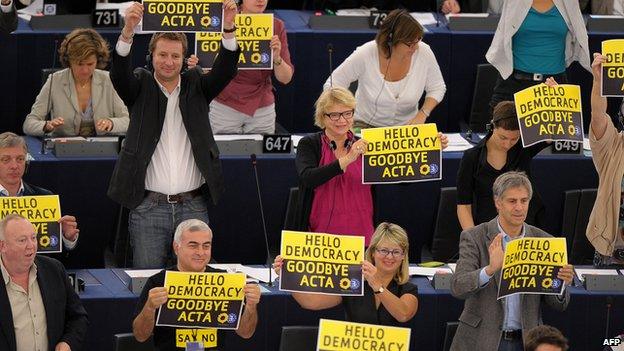
Strasbourg No vote: The MEPs' rejection of Acta delighted internet freedom campaigners
MEPs rejected an international agreement that sought to curb piracy on the internet - the Anti-Counterfeiting Trade Agreement (Acta).
A majority felt that Acta, intended to protect intellectual property and trademarks, lacked safeguards for freedom of expression and creativity on the internet.
Thousands of European activists had lobbied MEPs to reject Acta.
The vote in 2012 dealt a death blow to Acta - even though most EU governments and many other governments worldwide supported the treaty.

Clearer food labelling
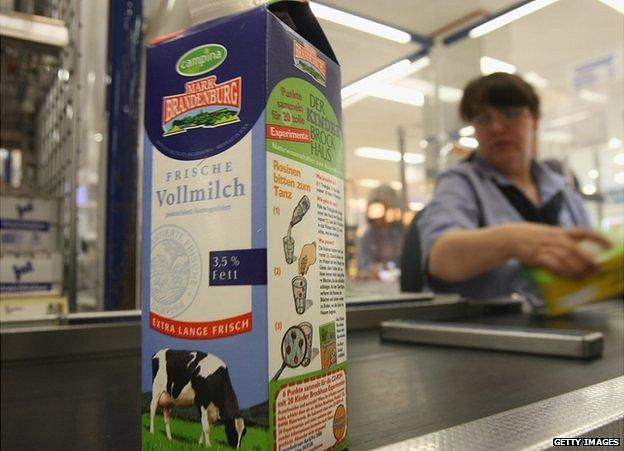
The EU is standardising nutritional information for consumers
MEPs backed measures to give more information to consumers about food ingredients. Rising obesity in Europe - and the cost of that to health services - has made clear labelling an issue that engages many voters.
Then the horsemeat scandal which gripped Europe in early 2013 gave more ammunition to the health campaigners.
The discovery of horsemeat in some processed beef meals makes it likely that the EU will try to tighten country-of-origin labelling.
In 2010 MEPs voted to make Guideline Daily Amounts (GDAs) standard on food packaging - not as big a step as the "traffic light" colour coding already used by some supermarkets.
The new rules would also make manufacturers put key information such as salt, fat and sugar content on the front of the pack.
